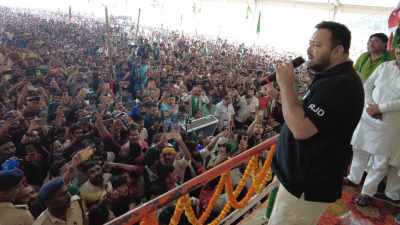Tale of two-and-a-half ministries
This week I have two friendly suggestions for the prime minister by way of administrative reform.

This week I have two friendly suggestions for the prime minister by way of administrative reform. In view of the embarrassing hysteria that the Union ministry of information & broadcasting displayed over Shilpa Shetty’s problems with “racism”, would he please close down this defunct, outdated ministry once and for all?
It is because the I&B minister has so little work that he has found time to intervene in one of the most ludicrous controversies ever and in the process made India look like a chippy, Third World country with identity problems.
We used to always look this way in the socialist days of yore but our recent economic successes have obliterated those memories. The I&B ministry, in its endless efforts to be the real Big Brother, reminds us that it is a leftover of bad times.
It had a role in the days when Doordarshan was our only television channel, when film-makers were so poor they needed government help to make dreary, un-entertaining art films that no sane financier would pay for and, when it was possible, to pass government propaganda as news.
The ministry is now obsolete and the quicker it is abolished the better. My second suggestion is more controversial. I believe that it’s time we abolished the union ministry of human resource development and used this change to put Arjun Singh out to pasture. The government has no role to play in culture or higher education and the HRD Minister knows this better than anyone — which is why the person who gets the job tries to establish his relevance by making trouble.
Murli Manohar Joshi tried re-writing history and grinding management institutes under his feet and Arjun Singh has made even worse trouble by making higher education into a caste issue. He and his ministry must go.
Instead, we should set up a temporary ministry of higher education with Sam Pitroda or Montek Singh Ahluwalia invested with the urgent task of getting government out of higher education. Ahluwalia made the brave suggestion at Mumbai University last week that universities needed to be allowed to raise fee to survive.
“At present, fee covers just five per cent of the total cost of education. We suggest that it covers 15-20 per cent of the cost. But with the increase in fee, we need more scholarships and student loans,” he said.
What he did not say is that unless this happens Indian higher education will hurtle towards terminal decline. Institutions that were once among the best in the world are today in such bad shape that they can barely maintain their buildings. There is no money at all for libraries, research facilities, computers or world-class professors and this abysmal state is because, in the interests of the “poorest of the poor”, college fee has not been raised for nearly 50 years.
Poor students, good enough to get into college, must never be denied higher learning because it’s beyond their means. But the best way to help them is to target their specific needs rather than keep fee down for everyone.
The reason I suggest only a temporary ministry of education at the Centre is because I believe that the government should have no role at all in regulating standards of higher education. This should be done by the universities themselves through an autonomous body that has educationists on it, not officials.
It is beyond belief that every technical institution in India is at the moment under the despotic thumb of a single AICTE (All-India Council of Technical Education). What sense does this make?
This interfering, omnipotent body was set up in 1945, for goodness sake! What relevance can it possibly have today when India needs thousands and thousands of technical institutes. Of course, there must be a regulatory body but it should have on it people like Nandan Nilekani and Narayana Murthy not a bunch of officials.
Speaking of Nandan Nilekani, I recently interviewed him for a television programme and asked if he subscribed to the idea that India having the largest number of young people in the world meant that it was our moment in history. He said he agreed that it was our great chance but we needed to remember that it could also be our only moment.
If our vast population that is under the age of 25 is educated and technically skilled, our future is luminous. If, however, the vast majority of these young people remain semi-literate, as they currently are, we have had it.
Higher education is too important to leave in the hands of government and you, Mr Prime Minister, should know this better than anyone.






- 01
- 02
- 03
- 04
- 05

























